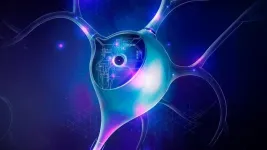Recent developments at MD Anderson include a computer game that helps breast cancer survivors improve symptoms of peripheral neuropathy, a publicly available single-cell atlas of CD19 chimeric antigen receptor (CAR) T cells, new targets for TP53-mutant acute myeloid leukemia (AML), a preclinical target for preventing chemobrain, a blood test to help identify patients at higher risk of developing pancreatic cancer, and genomic insights to predict the risk of outcomes in patients with bone cancer.
Read this press release in the MD Anderson Newsroom.
Computer game improves chemotherapy-induced peripheral neuropathy symptoms in breast cancer survivors
Chemotherapy-induced peripheral neuropathy (CIPN) causes negative sensations, such as numbness, loss of feeling and pain, for many cancer survivors and remains a major chronic problem after cancer treatment. In a new study, researchers determined working directly with the brain improves the perception of neuropathy. This study, led by Sarah Prinsloo, Ph.D., divided 91 breast cancer survivors experiencing CIPN into three groups. One group participated in sessions with a closed-loop brain-computer interface (BCI), a second group received placebo feedback, and a third group received no intervention. During each session, trial participants played a computer game designed to change the way the brain processed sensations and movements. After 20 sessions, only the two intervention groups experienced significant symptom reduction. The BCI group experienced the largest improvements, and their symptoms continued to improve for one month after their last session, while the placebo group’s symptoms returned. Learn more in Cancer.
Single-cell atlas of CD19 CAR T cells provides a public resource to drive insights into B cell lymphoma
Many patients with relapsed/refractory (R/R) large B cell lymphoma respond well to chimeric antigen receptor (CAR) T cell therapy targeting CD19, but the majority do not have a durable response, highlighting a need to understand the underlying resistance mechanisms. To address this issue, researchers led by Qing Deng, Ph.D., Michael Green , Ph.D., and Xubin Li, Ph.D., used single-cell RNA sequencing to establish a large dataset of CAR T cells used to treat 59 patients with R/R large B cell lymphoma. To show the utility of this dataset, the researchers used it to identify characteristics of CAR T cells among the patient population at three-month follow-up. The results showed a higher expression of genes from the glycolysis pathway in patients who achieved a complete response compared to those who did not. This single-cell atlas of CD19 CAR T cells is publicly available for further research and validation. Learn more in Cancer Cell.
Study identifies potential target for improving treatment response in TP53-mutant AML
Patients with TP53-mutant acute myeloid leukemia (AML) respond poorly to currently available therapies, including the combination of venetoclax and hypomethylating agents, which presents a major therapeutic challenge. A new potential therapeutic target, the epichaperome complex, is a protein network consisting of heat-shock proteins and co-chaperones found in many tumors that supports the survival of cancer cells. Researchers led by Bing Carter, Ph.D., and Michael Andreeff, M.D., Ph.D., identified high levels of epichaperomes in TP53-mutant AML cells. They found that targeting epichaperomes with the selective inhibitor PU-H71 had major anti-leukemia effects in AML cells and stem cells with TP53 mutations, but not in normal bone marrow stem cells. Importantly, they demonstrated that venetoclax selects for the outgrowth of TP53-mutant AML cells while PU-H71 eliminates these cells and enhances venetoclax activity. If confirmed in clinical trials, the concept could be an important therapeutic option for patients with TP53-mutant leukemias. Learn more in Blood.
Targeting ryanodine receptor 2 reduces chemobrain in preclinical models
Chemotherapy-induced cognitive dysfunction, or chemobrain, is an important but poorly understood side effect of chemotherapy. One possible explanation, based on previous research, is that chemotherapy interrupts the normal function of the neuronal ryanodine receptor channel type 2 (RyR2), which regulates calcium ion signaling in neurons linked to learning and memory. In a new study, Theresa Guise, M.D., and colleagues built on previous observations that leaky RyR2 channels likely play a role not only in chemobrain, but also post-traumatic stress disorder, Alzheimer’s disease and other cognitive disorders. They demonstrated treatment with a ryanodine receptor calcium release stabilizer fixed the leaks and mitigated the overall effect of chemobrain in preclinical models, suggesting that targeting RyR2 could be a promising target in preventing chemobrain. Learn more in Science Translational Medicine.
Blood test helps identify patients at high risk of pancreatic cancer in five years
Pancreatic cancer is projected to surge as the second leading cause of cancer-related fatalities in the United States by 2040. Still, its low incidence among the general population poses a challenge for effective screening. Recently, Johannes Fahrmann, Ph.D., Samir Hanash M.D., Ph.D., and colleagues developed a blood test that detects specific metabolites in the bloodstream, uncovering three microbial-derived metabolites and five non-microbial metabolites that are associated with increased pancreatic cancer risk. The metabolite panel, in combination with a commonly used CA19-9 marker, allowed researchers to identify individuals with high estimated absolute risk – a 13% chance – of developing pancreatic cancer within five years of blood draw. This absolute risk is about 200 times greater than the general population’s risk. These results show that the blood test can potentially identify patients who would benefit from early cancer prevention and detection strategies. Learn more in Cell Reports Medicine.
Study shows predictive value of TP53 mutations for patients with bone cancer
Patients with chondrosarcomas, the most common bone cancer, are usually diagnosed at a later age. While surgery is the primary treatment option, many patients eventually develop recurrence, highlighting a need to identify targets that could assist with risk stratification. While previous studies have highlighted the prevalence of IDH mutations in chondrosarcomas, their clinical impacts are poorly understood. To provide further insights, researchers led by Anthony Conley, M.D., and Ryan Denu, M.D., examined clinical and genomic data from 93 patients with conventional and dedifferentiated chondrosarcoma. Results showed that over 50% of patients had prevalent IDH mutations, but there was no difference in survival outcomes compared to wildtype IDH. Interestingly, TP53 mutations were present in 41.9% of patients and showed a strong association with poorer overall and metastasis-free survival, as well as a higher risk of recurrence following surgical treatment. The study emphasizes the potential of TP53 mutations for risk stratification in patients with bone cancer. Learn more in Clinical Cancer Research.
In case you missed it
Read below to catch up on recent MD Anderson press releases.
Alejandro Aballay, PharmD, Ph.D., named Dean of MD Anderson UTHealth Houston Graduate School of Biomedical Sciences MD Anderson Research Highlights: ASTRO 2023 Special Edition
– 30 –
END



